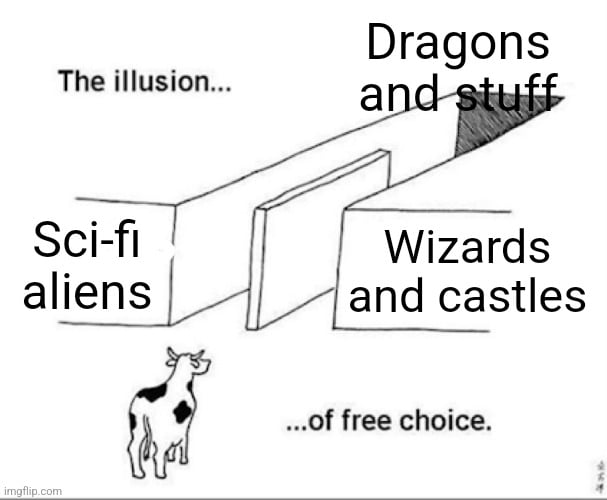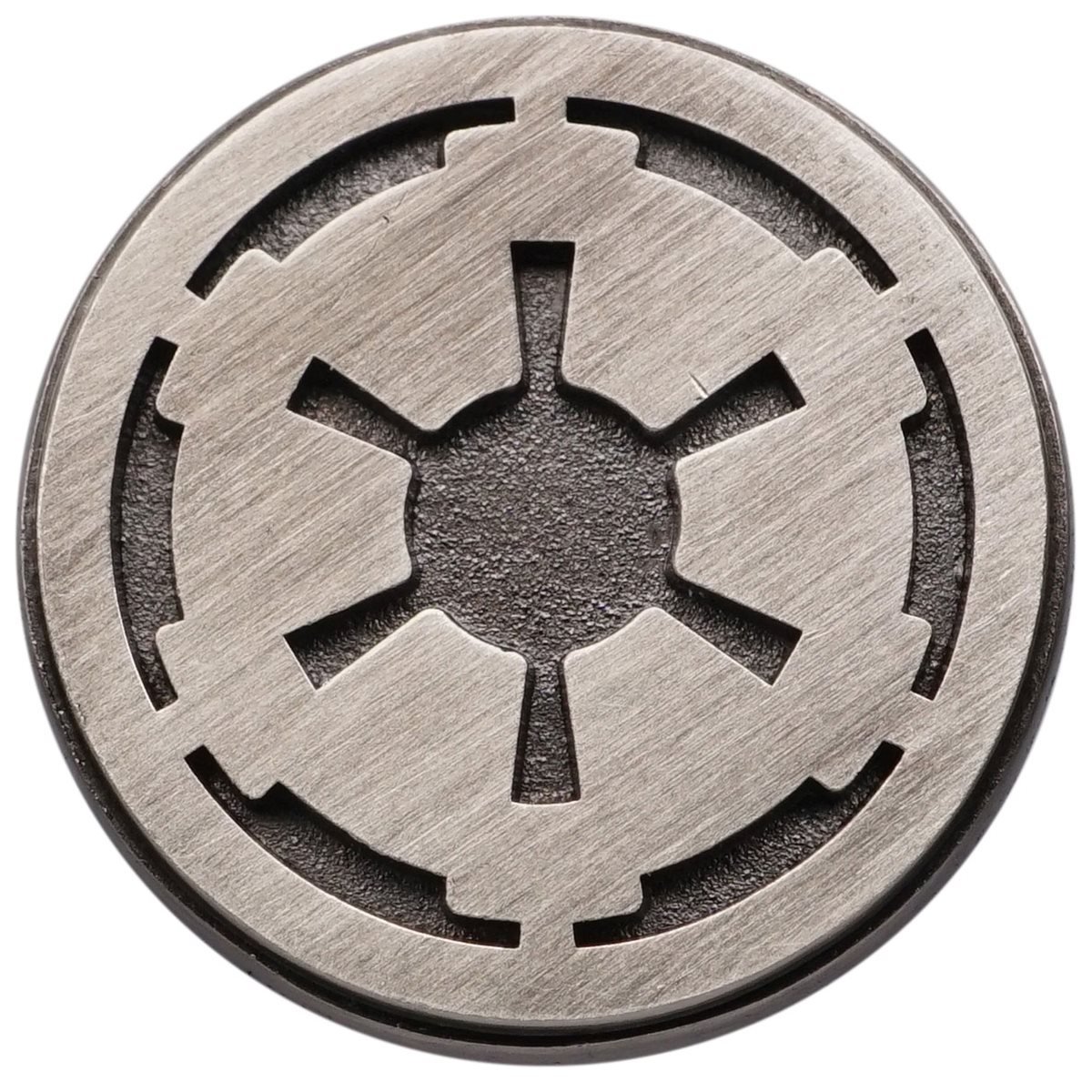I’m a software engineer who sometimes interviews other software engineers. I’m not given a script to go off of, I get to ask them whatever I want. Usually we just talk about technology and coding from a high level. I’m not a big fan of whiteboard tests.
I’ve noticed, however, that a lot of people applying to software engineering jobs feel very alien to me. I started coding when I was 12 and spent most of my teenage years on technology forums. A lot of people applying to these positions are very much ladder-climbing type people who got into the career for the money. Working with these people is an absolute drag.
We also interview for “culture fit”. I would like to add in a single question to my interviews to assess that: what is your favorite science fiction book. You don’t even have to have read it recently, you just have to have read one and formed an opinion on it. My thoughts
Pros:
- Weeds out a lot of people since half of Americans don’t read books at all.
- Theoretically filters out people who love this kind of tech subculture from people who are just in it for the money
Cons:
- It’s unfair to people who enjoy fantasy novels, or any other form of fiction
- Being motivated by money probably shouldn’t be a disqualifying factor (I certainly wouldn’t do this job for free), I’m just tired of working with yuppies and lashing out at poor unsuspecting Jr Devs
I’m half-hearted on this. I see why it could be considered unfair but I’m really tired of the kinds of people I work with.
I interviewed someone today whose hobby was poetry of the African diasporia, for a position relative to logistics.
While I know very little about that specific poetic oeuvre, hearing them talk about their passion gave me an insight into their personality.
Perhaps ask questions about what they’re into rather than if they’re into thing.
When dating people, I often ask “name a book that’s not Harry Potter”. Doesn’t even have to be one you’ve read. Pick any book at all (other than Harry Potter) and tell me why you thought of it.
I’m not gatekeeping people who do or don’t read books, and i don’t care if it’s sci fi, fantasy, fanfic, nonfic, whatever. what i do care about is that you are aware of at least one book and care enough to remember what it’s about. That’s a low bar, but not as low as you might think.
The “no Harry Potter” clause isn’t specifically due to jkr being a terf (although that too), but because it’s such an overused answer. Yeah, I do remember the books that were so popular that they had their own brand of jelly beans. I have run out of things to say about them. Pick literally anything else.
I grew up coding but don’t read sci-fi. You need to expand your idea on what a good motived coder looks like. It sounds like you’re in a bubble.
You’re right, it’s exclusive when it shouldn’t be.
I would expand the question. “Sci-fi had always inspired me, what clicks for you and why?”
I like this question. I think this works great. I’m too low on the pyramid to interview much anymore, but might ask this in my next interview!
I speak casually but my aim is just to find out if they have the technical skills necessary for the role. I find little social things come up by happenstance.
This doesn’t correlate with good developers at all in my experience. If I was to ask one question it would be “tell me about your passion project” or “What’s the last thing you nerded out on?”
It’s not 100% about getting the best developer, it’s about team culture
You’re not interviewing for friends. “Team culture” in this case seems like shorthand for “someone just like me so I don’t get challenged”. I would suggest spending some time thinking about why scifi books in particular and what that says about you.
Look up any personality+leadership theory, DISC is a common one I’ve seen. Teams with a mix of personalities and backgrounds are more optimal than a team of basically the same person. Yes, even “ladder climbers” can be good for a team, provided they have other positive traits that go with it.
you may want to be careful how you word this; if you focus too hard on a specific culture then you inherit that culture’s biases. I don’t think english language sci-fi novels are known for their racially and sexually diverse fandom, for instance.
Maybe just ask them if they have read anything interesting lately ?
No. What? No.
Unless you publish sci-fi novels as a business, I suppose. Then maybe. But no.
I don’t have anything against “culture fit”, but that means that if you think someone will make your life miserable by sharing a space for eight hours it’s okay to go with someone else. It’s not a blank check to audit people’s Spotify histories. Job interviews aren’t dates.
This seems terrible.
- Weeds out a lot of people since half of Americans don’t read books at all.
Is that always a good thing? What about people who don’t read much but listen to audiobooks and go to the theatre a lot?
- Theoretically filters out people who love this kind of tech subculture from people who are just in it for the money
One of the best programmers I ever worked with was ‘in it for the money’. He was what Goldman Sachs used to call ‘long term greedy’ though which meant he had an eye on the success of the project above and beyond his own responsibilities and his own code. That’s why he was one of the best programmers.
The fact that you even weighed the pros and cons of your proposal puts you light years ahead of most hiring managers.
Haha I’m afraid every time I interview someone. I know that I personally hate being asked whiteboard algorithm questions, and I don’t think they’re very useful either. When I interview people I ask them two main questions:
- What is your hottest take on coding? It can be controversial or not, it just has to be a strongly held opinion. For example, if you despise Windows, tell me why. If you are a zealot for Vim/Emacs, rant at me. If you think that dynamically typed languages are the worst thing ever, prove it.
I don’t actually care about what their opinion is (though I think it’s good to hire people with a lot of intellectual diversity), I just want to see if they can extemporaneously rant about coding for 10-15mins
- What is a technology (an API, a cloud service, a programming language, a new kind of algorithm, etc.) that you are excited about and that you want to be able to use at work some day
Again, the actual tech doesn’t matter too much to me, but this indicates that they read up on the latest goings-ons of the industry they’re in. I also think that it’s a good character trait to be someone who desperately searches for problems to apply a novel solution to. I don’t think it’s always a good idea to ACTUALLY create a solution looking for a problem, but I think it’s a good intellectual trait to have
Interesting, I posted a top level comment to you but you’re already doing some similar things to what I posted.
I never got super into sci-fi; it just wasn’t my cuppa. I was always on the fantasy side of things with regard to fiction, being heavily into D&D and many of the novels around the various settings and characters. Edit: I’ve been a developer since the mid aughts and alternately worked in tech and other jobs before that. I wrote my first programs in basic around 9 or 10 when dad gave me something to do to keep out of his hair.
“Any sufficiently advanced technology is indistinguishable from magic” -Arthur C. Clarke
Always loved this one as a sci-fi and fantasy kid. When you love dragons and teleportation and talking animals, it kinda doesn’t matter how they are delivered to your brain.

I like to say that Star Wars is to fantasy what Discworld is to sci-fi. Star wars is swords and sorcery in space, and Discworld is ethics and robotics in middle earth.
A buddy of mine was interviewing for a job and got it in part because he was a player in one of my games. They knew they could get along with him.
I would try to leave it more open-ended when asking what their hobbies are outside of work, and then ask whatever follow-up questions you can think of that would let them express what they’re passionate about.
As a tension softener, I tend to open interviews with: What’s the best movie ever and why should I love it too?
It helps me tell how good they are convincing someone else of something while also it helps them relax a bit, as a softball before we start pitching curved ones.
I prefer doing this rather than asking for hobbies as the interviewees tend to gave prepared corporate-grade answers.
I tend to finish asking to give us a song recommendation, which sets a better mood (hopefully) to end it.
I just hope there’s nobody out there still trying to figure out if they gave us the wrong recommendations.
Oh that’s so stressful. I actually hate sharing my song and movie recommendations because I usually like weird indie shit that nobody else enjoys (as pretentious as that makes me sound). I get extremely self conscious about my taste in stuff and would 100% worry that I gave the wrong recommendation.
Oh god just thinking about this is giving me anxiety.
I want someone that’s pleasant to work with and can pull their weight, but that’s just my preference.
Echoing this. Even as someone who does read sci-fi, I think leaving it open ended is better. Hobbies is a good angle; it could also be “What show, book, or film did you enjoy recently?” then follow it up with “Why?” and work from there.
What this shows:
- They live a balanced-enough life that they have time to do relaxing stuff, aren’t money-focused tryhards like OP is trying to weed out.
- Allows them to demonstrate explaining a topic unfamiliar to the interviewer.
- Shows how they respond to unexpected questions outside the normal, practiced interview set.
- Follow up questions can still weed out people who are viewing it “just because”, they heard it was popular, or whatever.
My dad designed jet engines and nobody made him design a jet engine on the whiteboard. So you are starting from the right place.
We are here where we are today because we spent too much time thinking that acting like the right kind of nerd meant you were a good programmer. There’s nothing wrong with going to a job, working hard, and then doing something else. I know very productive engineers who don’t have a favorite science fiction book who were great to work with.
Given things lately, I think it’s healthy that a lot of people have had to take a step back and realize that their employer would totally harvest their organs for profit if they could get away with it. Providing people the right “tech subculture” cues has resulted in a lot of people working themselves to death and never seeing any income windfalls.
I actively hate a bunch of my old science fiction books from when I was a kid because they were written with what is, to my adult mind, a not-very-subtle fascist bent. There’s, obviously, some great novels out there that expand your mind … but at the same time, there’s a lot of the science fiction canon where I’d probably hate working with people who took those books seriously.
And, likewise, there’s a lot of people who simply don’t have time because they are smart people actually trying to get into the lucrative field of computer science and a good scifi novel reading session is a luxury they just don’t have.
“Tell me about your favorite science fiction book” is pretty much a textbook case for how to have good intentions but conduct an interview that’s, when you step back and think about it some more, biased. It’s checking for subculture-fit in ways that have nothing to do with how they are at work.
On the other hand, whiteboard tests are also useless.
If you want to make a better interview, I’d suggest you have an interview guide. Not a manager? Just write your own for your interviews and keep to it. This protects you from unconsciously giving the person who looks the part easy questions.
If you want to check for culture fit, talk about things at work that matter. Are you worried someone is going to talk down to a junior engineer? Make them talk about a time they had to mentor a junior engineer. Did they succeed? What did they do? Ask them about the best project manager or doc writer they worked with. Are you worried that they aren’t serious enough about getting shit done at work? Talk about the worst incident they ever were part of, but not the technical parts, just how they made sure it got fixed. Are you worried that they aren’t a good team player? Ask about their best collaborations. Or how they organized work on a large project. Or the time that they took one for the team. If you think through how the last crop of yuppies pissed you off for a while and break it down into questions that they’d not have a good answer to, you should be able to make a nice set of behavioral screening questions and a set of attributes that you want the person to display in their answers.
Here’s a twist to the question: what if the company created artistic products? For example, a game development studio? Would the fiction you read/watch/etc be more relevant to the job? Even for software engineers
I see what you’re getting at, but maybe broaden it to just their favorite book. I also certainly wouldn’t disqualify based on not having read books (sci-fi or otherwise), because maybe they read short stories online, or maybe comics or something similar.
If you have the authority to try to make a good company culture; hell yes you should. Even if they don’t often read novels, or they read something other than sci-fi, it’ll help you understand their personality and weed out people who suck. If someone says they prefer reading sci-fi manga or playing fantasy ttrpgs or any other possible nerdy thing they are probably leagues better than a ladder climbing type.There are plenty of places for a soulless corpo to go work for, if you can keep them away from you and yours you’ll have a much better and healthier company and (more importantly) life in the long run.
Yeah but at the same time I feel like it’s kind of privileged to be able to work in tech because you love coding. I mean everybody should work in jobs they love but I’ve met a huge number of people who were making slave wages in other fields and moved to coding to make more money. Why should I punish that? Because I find their water cooler conversations to be boring? What if they’re the first person in their family to graduate college and they’re just trying to feed their family and are actually really good at coding, but their real passion in life is Football? I want to work in a workplace with people I would want to actually hang out with, but it seems petty to penalize people for not liking the same things as me and not having the advantage of a great salary to be able to turn their real passion into a career
So you can ask them what they are passionate about outside of work. Something like:
I’m really into reading sci-fi books. Is there anything you are passionate about outside your work?
That’s not exactly what I want to select for though.I guess leaving it open ended lets them convince me of the culture fit rather than just trying to check a box. Maybe they don’t give a shit about science fiction, but they’re really into science or art. That’s cool, too
I like to ask candidates to tell me about a design pattern, or a framework, or a coding principle that they really appreciate and which changed how they think about or write code. It’s an open-ended way to show me they care about the craft.
People who find the field interesting and somewhat fun (AKA not just lucrative) usually have these kinds of preferences or paradigm-shifting moments / learnings. People who can’t come up with anything for this question tend to be real junior or just in it for the wrong reasons. Or so I tell myself, anyway.
I think it’s better to get an intuitive/human understanding of an applicant rather than making them take an SAT of Javascript questions. Above all, I value flexibility and the ability to learn new things. A lot of the people I don’t want to work with kind of just learned react at a bootcamp and that’s all they know how to do










